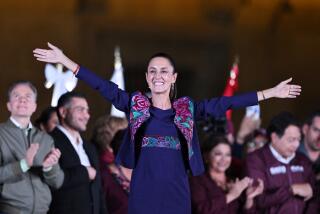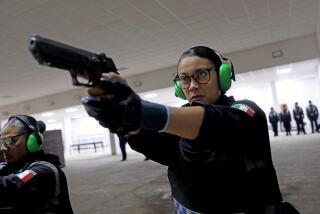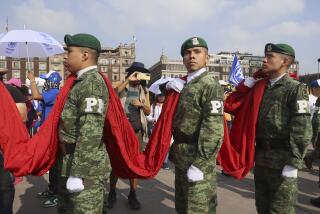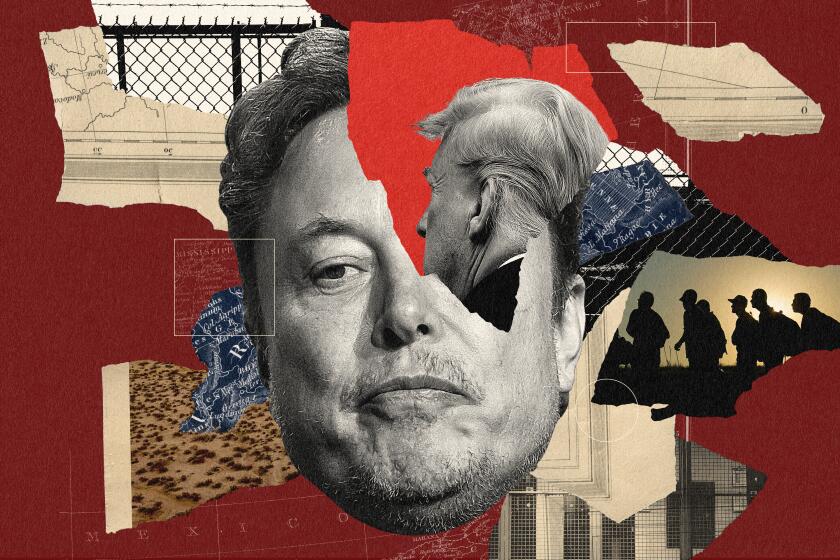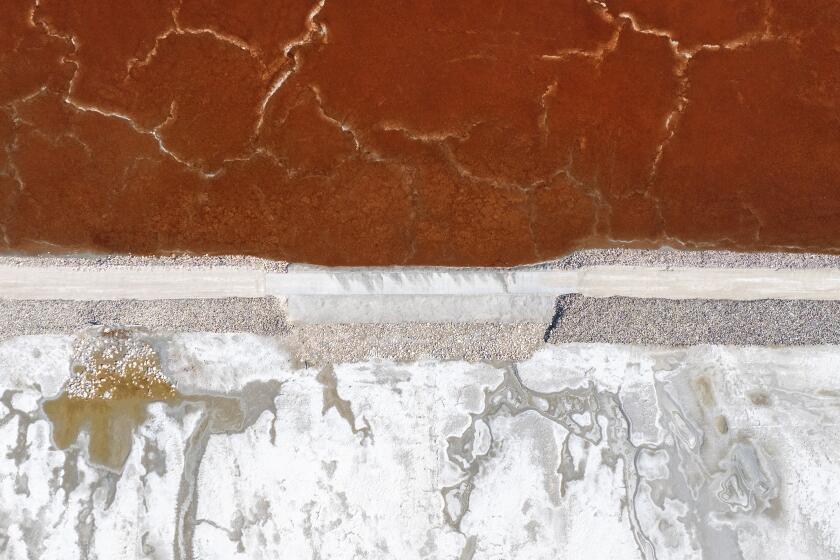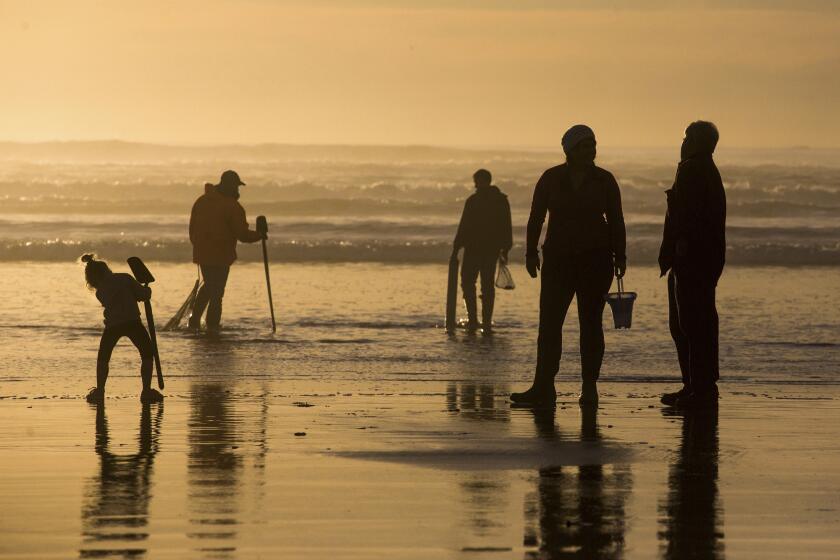Argentine Foes Meet Again in U.S. Courtroom
In a dramatic courtroom confrontation, an Argentine lawyer Monday described his four years of imprisonment and torture under an Argentine military junta in the 1970s and described an exiled Argentine general who was sitting in the courtroom as the “lord of death and life” over political prisoners.
Horacio Martinez-Baca, 48, faced Gen. Carlos G. Suarez Mason in federal court and recounted how two armed agents directed by the former general appeared at his home and arrested him within days of the military takeover in March, 1976.
He said his captors repeatedly tortured him with ice-cold showers, with electric shocks to his genitals and gums, and with blows to his head and the soles of his feet.
Martinez-Baca’s statements came in testimony before U.S. District Judge Samuel Conti in a civil lawsuit seeking $20 million in damages from Suarez Mason. The unusual suit was brought under U.S. law that allows victims of international human rights violations to sue their captors if they set up residence in the United States, as did Suarez Mason.
Martinez-Baca, noting that he still suffers the effects of his torture, testified that he filed the suit in the hope that it would deter other government leaders “who think they are master of life and death,” and to prove that the rule of law ultimately can win out over repressive regimes.
A series of coincidences brought the two men into court Monday. Martinez-Baca, a former Argentine government official and union lawyer, received asylum in this country upon his release from a Buenos Aires prison in 1980, a time when the military still ruled Argentina. He now lives in Oakland, where he is studying to become licensed to practice law here.
Suarez Mason fled Argentina in December, 1983, after the military relinquished control of the country to a civilian government headed by President Raul Alfonsin, and traveled on an allegedly forged passport to the United States.
He was arrested last year in the San Francisco suburb of Foster City at the request of the Argentine government. Authorities there accused him of 43 murders and other crimes committed by soldiers under his command. Another federal judge here is considering Argentina’s extradition request.
Suarez Mason, 64, commanded the military and police forces in the Buenos Aires area from 1976 until 1979, the height of the Argentine military’s so-called “dirty war” against suspected subversives. An estimated 12,000 people were killed during the junta’s anti-leftist campaign and thousands more were imprisoned.
“The prisoners used to call him the lord of death and life,” Martinez-Baca said.
Martinez-Baca, in his suit, does not allege that Suarez Mason personally participated in torturing him. Rather, the suit alleges that Suarez Mason directed the torture.
Martinez-Baca said he was never told why he was arrested. He said judges ordered his release, but military authorities overruled them and kept him behind bars.
“I (had) no choice but to leave my country if I want to be free,” he said. He arrived here unable to speak English, separated from his family and 70 pounds underweight. He was “40 years old and had to start all over.”
“It is not easy,” he said.
Suarez Mason had failed to respond when the lawsuit was filed, and in earlier hearings, prompting Conti to find him in default, which means the former general will be ordered to pay damages to Martinez-Baca. Monday’s hearing was to determine the amount of damages. The judge is expected to rule on the matter soon.
On Monday, two San Francisco lawyers appeared on behalf of the former general. But Conti would not hear from them, saying Suarez Mason had missed his chance to take part in the hearing by failing to respond earlier.
Later in the hearing, when Suarez Mason tried to speak during testimony by Rabbi Marshall Meyer, a member of a panel appointed by Alfonsin to investigate crimes by the junta, the judge ordered him to sit down and threatened to have him ejected from the courtroom if he spoke again.
When the judge awards, Martinez-Baca’s attorneys believe they will be able to collect. Suarez Mason was president of the nation’s government-owned petroleum company in 1981 and Martinez-Baca’s attorneys believe he accumulated illicit wealth in that position.
However, according to David D. Cole, attorney for the New York-based Center for Constitutional Rights, one of the organizations that is representing Martinez-Baca, money is a secondary issue. “There’s a very important moral significance to requiring a torturer to face his victim in a courtroom,” Cole said.
More to Read
More to Read
More to Read
Start your day right
Sign up for Essential California for news, features and recommendations from the L.A. Times and beyond in your inbox six days a week.
You may occasionally receive promotional content from the Los Angeles Times.
